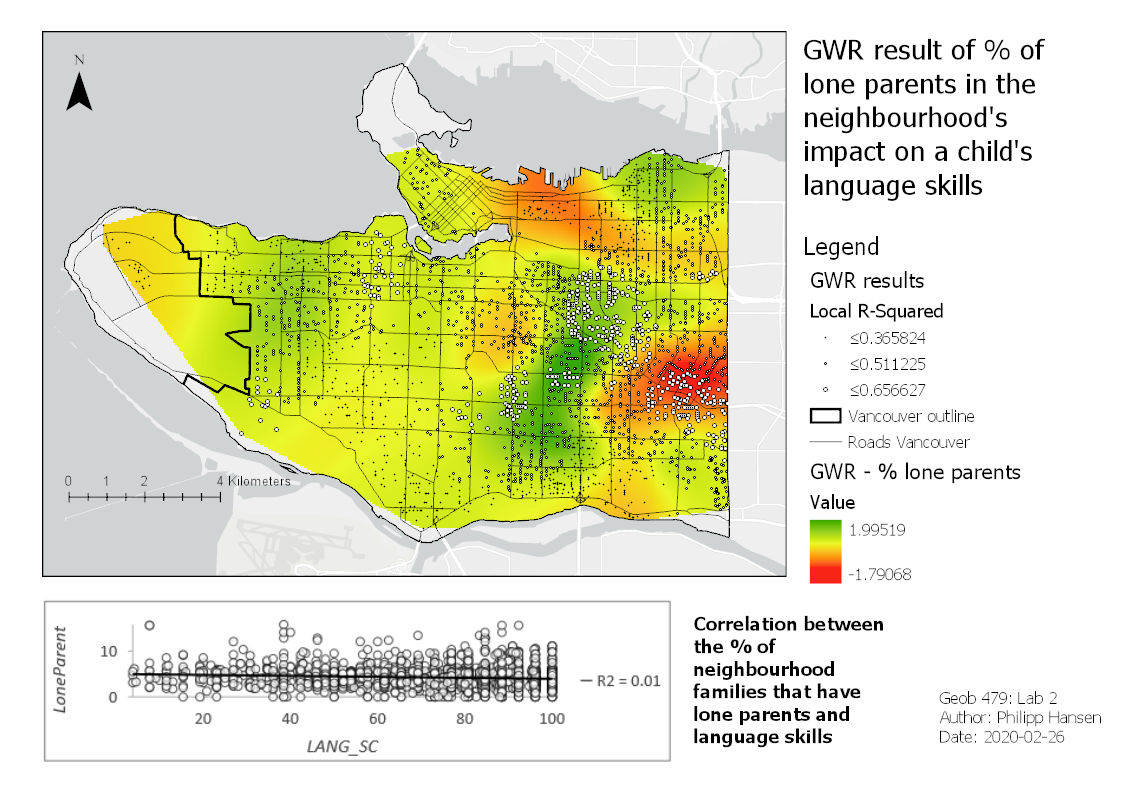In this lab, we assessed the impact of several social-environmental variables in the neighborhood on the language skills of a child in Vancouver, BC. Standard regression methods work with the global distribution of the data points, which is not appropriate when analyzing the local spatial variations within a data set. Therefore, we performed a geographically weighted regression (GWR) in this lab, which performs a regression for every point of the dependent data set by distance-weighting the influence of the independent variable points.
Not a great amount of the child’s language skills could statistically be explained by the given social-environmental data. This does not come at a great surprise, as the variability in the language development is determined by many other factors such as the introvertedness or curiosity of a child.
The following map shows the output of the GWR for the influence of the percentage of lone parents in the neighborhood on the language skills of a child. As can be seen, there is some variability in the East Vancouver and the hot and cold spots visually seem to correlate with some of the higher R-Squared values of the GWR. The graph below, however, reveals that the correlation between the two lone parents and language skills is very low.

The study area has also been grouped into different neighborhoods with distinctly different socio-economic conditions.
